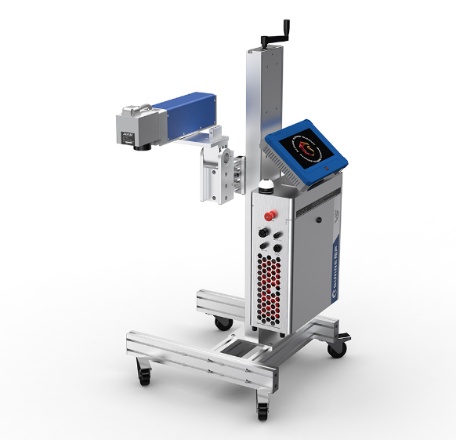Traditional marking technologies use direct contact or consumables to mark surfaces. It limits accuracy, durability, and material inclusiveness. In contrast, the fiber laser marking machine uses optical fibers to send high-density light to work on the material and provide accurate laser cutting. Accordingly, it delivers outstanding marking effects, unerasable marks, and high efficacy across many materials without physical contact or consumables. Laser marking technology also features fast processing rates and minor maintenance, which are mostly concerning points for manufacturers.


✓ Limited precision and accuracy
Traditional marking methods lack micron-level accuracy. Therefore, for industries with higher requirements, such as semiconductors and medical devices, traditional coding methods cannot provide satisfactory solutions.
✓ Impact of traditional coding and marking methods on the environment
Traditional marking methods, such as inkjet, consume a large amount of ink and are not environmentally friendly. Less usage of ink or ribbon, which are common consumables we see in inkjet and TTO, helps limit water and soil contamination.
✓ Time-consuming processes and increased downtime
Traditional marking systems require lengthy setups and modifications for different materials and patterns, which can hinder production. As a result, uptime and manufacturing efficiency are reduced. The quiet regular maintenance affects workflow and output in a great way.
Learn about fiber laser marking
- What is fiber laser marking?
Fiber laser marking machines generate laser light from fiber optic cables. Energy-efficient light amplification technology is possible due to the small diameter of the fiber core and the unique properties of the dopants. As a result, the devices can focus high-density laser beams to accurately leave permanent marks on metals and plastics. Etc. Fiber lasers in marking machines perform with excellent accuracy and little heat spread.
- Industries benefiting from fiber lasers
Fiber laser marking technology benefits a wide range of industries, such as automotive, medical devices and electronics. Fiber lasers can etch high-resolution barcodes and serial numbers on objects for durable, accurate part identification. For example, it marks engine parts and VINs in the automotive industry to allow automakers to achieve traceability and safety compliance.
- Advantages over traditional marking methods
Fiber laser marking machines become more popular in the markets because more and more manufacturers have noticed what lasers can do for them.
First, the non-contact marking method reduces workpiece contamination and mechanical stress, which is needed by industries requiring hygienic or precision parts. The efficiency and speed of fiber lasers reduce processing time and energy consumption while lowering operating expenses. The light beam allows them to create more complex and smaller codes or patterns on products. Furthermore, it provides anti-counterfeiting and brand protection. Last but not least, fiber lasers offer a lower total cost than traditional technologies due to their greater durability and lower maintenance costs.
Choose the right fiber laser marking machine
Common fiber laser marking machines are 20W, 30W, and 50W. The greater the power, the more efficient the laser marking. High-power lasers can be paired with larger lenses, allowing larger areas to be printed. No matter what content you would like to print, dates, series numbers, QR codes, or barcodes, you can find the right model from SUNINE products. Contact us for sample testing and model suggestions.
Please also read Explore the Diverse Applications of CO2 Laser Marking Systems.
The SUNINE D series, ranging from 20W to 100W, is applicable to a majority of industries. Higher power can be offered if needed. It can work on non-transparent materials, and the highest marking speed reaches 18000 mm/s. It is installed with our self-developed powerful operating system SUNINE V5 with a highly integrated motherboard, which enables complicated custom solutions.
SUNINE manufactures high-speed fiber laser marking machines for dense materials. Additionally, our unique V5 marking software allows users to quickly create complex codes and flexible messages with simple operations. It benefits the food, beverage and pharmaceutical industries due to high printing efficiency. For more info, please visit www.suninelaser.net
Interesting Related Article: “Applying Automation in Manufacturing“
